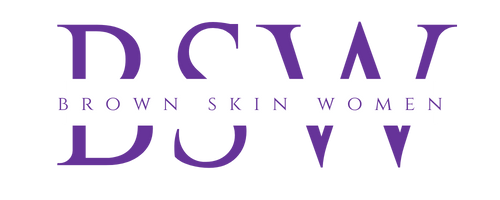If you’ve made it to this blog, then you’re likely interested in adopting a clean and simple lifestyle. We often discuss the important steps you need to take when caring for your natural hair at home. Brown Skin Women provides training courses for consumers that demonstrate proper techniques for each step of the home hair care process. However, you can’t do everything at home. Contrary to popular belief, natural hair still needs professional hands occasionally. It would be best if you had a professional for routine trims, hair coloring, and thermal straightening. Going to trained stylists will minimize the damage done to your hair and ensure the healthiest, happiest hair possible. Brown Skin Women’s salon is often booked out months in advance, and let’s be real, not everyone lives in Connecticut!
There are many stylists that service curly hair, but they do not protect and serve them. It’s a large concern with the community when they realize they need to see a local professional. There may be hundreds of hairdressers near you depending on where you live. So, how do you filter through the stylists near you? We’ve got your back, Curlfriend. Here’s a guide to vetting potential stylists so you can continue to live Simple and Clean.
Practice Your Due Diligence
You don’t want to walk into a salon without doing your own research on the stylist. Here are a few quick and easy ways to see how they operate their business.
-
Look at their online presence. Check their social media or website to see if the hair they do reflects your own. See if they style natural hair in similar ways to what you want. If they do, do you like the quality? If yes, continue practicing due diligence. If not, then move to the next stylist and start the process over again.
-
Read the comment section and reviews. Typically, 2 types of customers leave reviews. Either they are extremely happy or upset. If you notice quite a few negative comments regarding similar things, this could be a reoccurring issue with the stylist. The same goes for positive remarks. If most of the clientele is happy with the service, that’s likely commonplace.
-
Remember that you’re seeking a professional. When checking out reviews, see if the stylist replies. If they do respond, take note of how they market themselves to their current and potential clients. Are they being rude or are they maintaining a polite, professional voice? Note: There is a difference between rudeness and straightforward honesty.
-
Check credentials. Make sure that the stylist you’re considering is a licensed professional that has invested in continuing their education.
If you’re still interested in partnering with this stylist, continue on!
What is their approach?
Here are questions you can ask before scheduling your appointment with the stylist.
- Do they educate their clients? Proper home hair care in between salon visits is the foundation for a great partnership. Your stylist should be able to give you advice that is tailored to your situation and hair desires.
- What type of products do they use? Are those products plant-based or commercial standard? Do they use products that contain heavy butters and oils when they style natural hair?
- If they do not use plant-based products, are you comfortable with using what they have?
- If they do not align with the Clean and Simple method (and many people do not), are they willing to make alterations for you? This includes using products that YOU are comfortable with and avoiding butters and oils.
- It’s perfectly fine if they are not willing to change the way they operate for you. Move on to the next stylist. It’s important to be confident and clear with your expectations during your appointment. Many professionals are unaware of the science-based approach to tight, curly hair.
Reflect Before Your Decision
You will get a feel for the stylists’ approach and personality after asking the questions above. You should not partner with a professional that made you feel uncomfortable or belittled when you asked said questions. If you brought a new concept to the table and they made you feel like you had no idea what you were talking about, or that you were ridiculous for the suggestions, that’s a red flag. Remember, this is a partnership. There should be a foundation built on mutual respect and trust.
Think about all the research you’ve done and the conversations you’ve had. If you feel comfortable moving forward, great!
Once the Appointment is Made
Follow your stylists’ instructions for the best-case scenario. As a veteran professional, the last thing I want is to cater to clients who neglect their hair because they do not know best practices. Hair care should be a hygienic, routine practice. If you aren’t cleansing your hair about once a week, you are not only neglecting your hair but also your scalp (which is the skin). There are dead skin cells, sweat, and sebum (natural oils) that clog the pores of your scalp. You must cleanse in order to remove them. You are neglecting your hair and scalp if you’re not regularly cleansing them.
Arriving at a salon with hair that has been neglected will warrant additional fees (because we will have to reverse the neglect, which takes time) and may lead to you getting rescheduled or canceled. This happens because you have arrived in a way that our time cannot accommodate. Us professionals can do our part but we need our clients to meet us halfway. This is why home hair care is so important.
If you want to learn more about vetting potential stylists…
Check out this episode of the Brown Skin Women podcast, “36. Breaking Down Influenced and Educated.”

